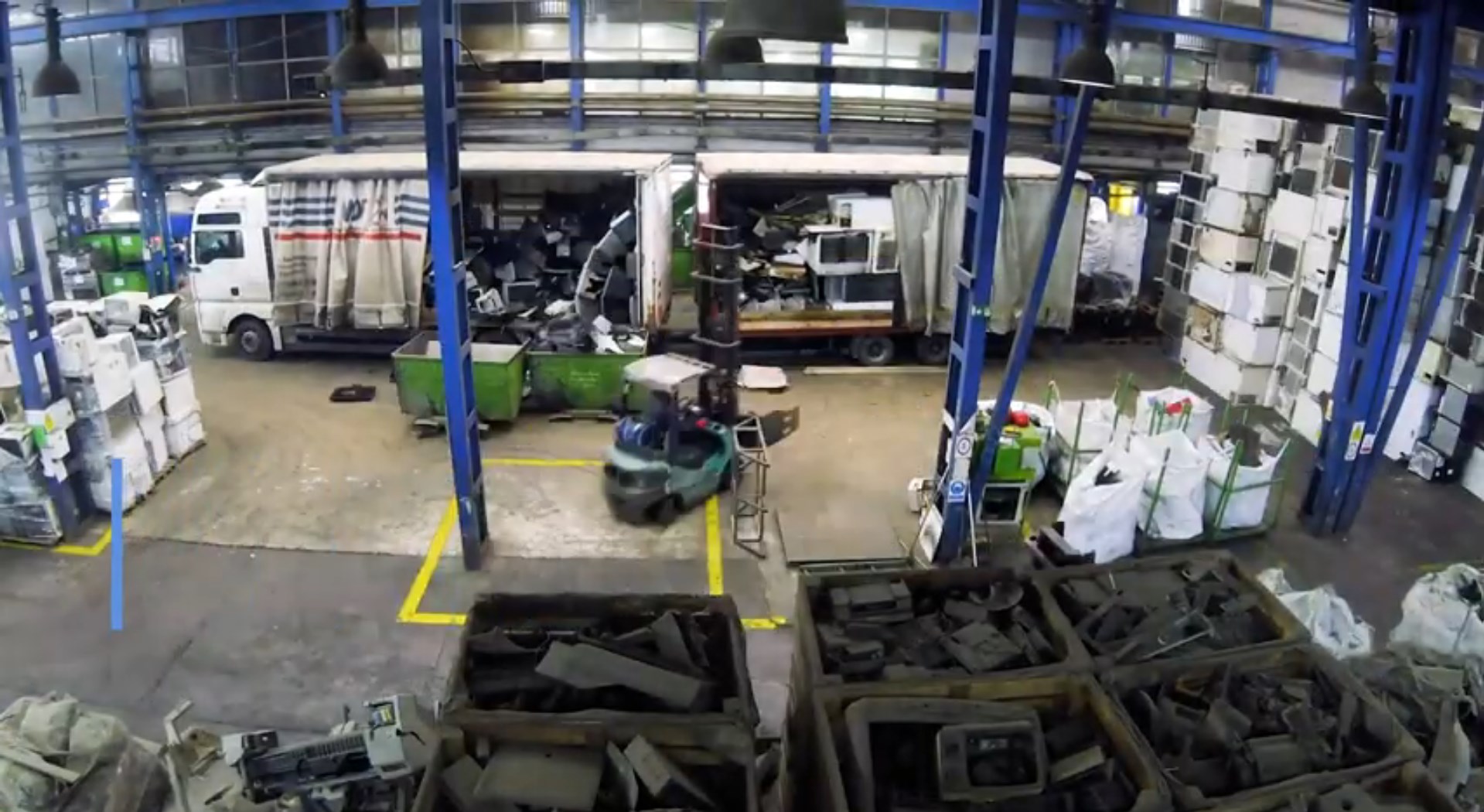New product from old refrigerators – recycling for waste reduction and environmental protection
There are around 20 million electronic and electric devices in the Serbian market. With the growth of demand and the price drop, the older, obsolete devices are being disposed of. If they end up in a landfill, electronic and electric devices become hazardous waste. They release dangerous substances such as mercury, lead and cadmium in water and soil, whereas they emit the greenhouse gases (GHG) into the air, having an impact on climate change. A discarded refrigerator, for instance, emits the same amount of CO2 into the air as an airplane that has travelled almost halfway across the globe (10,000 kilometres).
However, electronic and electric devices can be recycled—in such a way that it results in brand new, usable and environment-friendly products. This is exactly the business case of Jugo-Impex E.E.R, a company from Niš. One phone call is enough so that electronic or electric waste doesn’t go to the landfill, but to their recycling plant instead. Their waste-collecting team will come to your home address and pick up the waste for free. They have managed to collect 4,000 tons out of 10,000 tons of refrigerators that are being disposed of in Serbia every year. When recycled properly, all the parts of one’s fridge can be reusable.
“One recycled fridge gives us 20% of plastic, 63% of iron, 6% of coloured metals, 10% of polyurethane powder obtained by processing polyurethane foam, and around 1% of Freon and oil,” explains Nenad Todorović, maintenance engineer for plant and equipment at Jugo-Impex.
“Polyurethane foam is used as insulation in cooling devices, and it contains Freon. F-gases are powerful greenhouse gases with a high global warming potential and strong impact on climate change. A proper recycling procedure separates Freon from the polyurethane foam, and we convert hazardous waste into a completely safe polyurethane powder which we use to make a new product with high absorption powers. This is the first product of this kind made 100% out of recycled materials in the region, and it is used to absorb oil spills and stains,” says Goran Zdravković, maintenance engineer for plant and equipment at Jugo-Impex.
Proper recycling of refrigerators prevents GHG emissions, while the production of absorbers gives us a useful product that is safe for the environment.
In Jugo-Impex, they believe that in the next two years the recycling of refrigerators will contribute to removing around 10 tons of Freon, which will result in a decrease of CO2 emissions by 16.5 tons per year.
Waste recycling contributes to environmental protection because this process allows for proper collection, transport, treatment and disposal of hazardous waste. From the business point of view, the materials obtained through recycling are significantly cheaper than the same materials obtained through classic industrial processes, whereas the circular production models can also create new jobs.
Increasing the circularity of consumption and production is one of the global Sustainable Development Goals (SDG 12), and it also contributes to Serbia’s progress toward the EU accession (Chapter 27, on environment and climate change).
The production of absorbers from fridge polyurethane foam was one of out of five best and most innovative climate smart solutions which received co-financing for implementation within the project Climate Smart Urban Development Challenge. The project is implemented by United Nations Development Program (UNDP) in partnership with the Ministry of Environmental Protection, and with the financial support of the Global Environment Fund (GEF).
By clicking on this video, you can learn more about the process.

